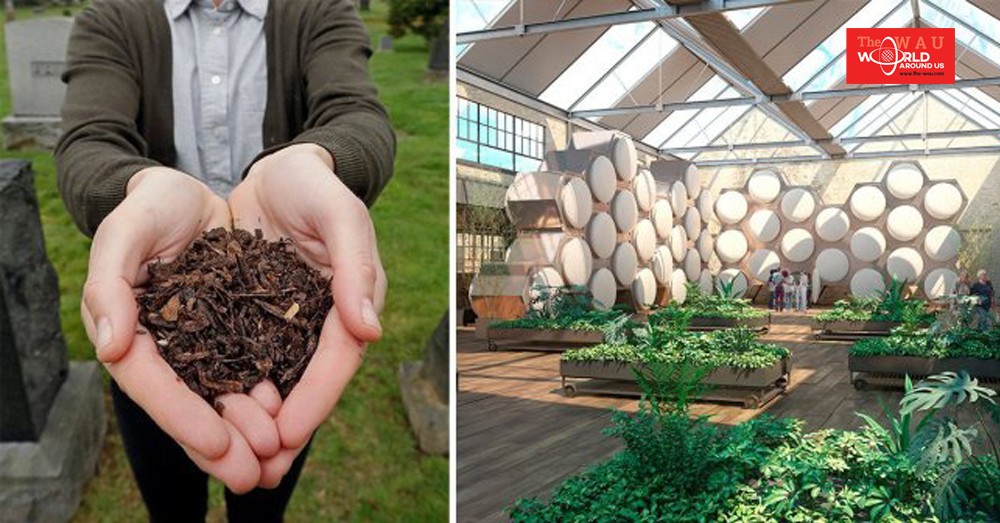Human bodies are now being turned into compost in Washington as an alternative to cremating or burying remains.
The process is based on ‘livestock composting’, long-used by farmers for years, and mixes the body with wood chips and straw. A law has been passed allowing licensed venues to turn a body into around two wheelbarrows’ worth of soil in just weeks, making Washington the first US state to legalise the practice. Governer Jay Inslee has passed a bill allowing licenced facilities to offer the service, known as ‘natural organic reduction’.
Loved ones are allowed to keep the compost to spread like ashes or they can use it to plant vegetables or a tree. There are numerous cemeteries across the US which already offer ‘green’ burials, by which people are buried in biodegradable shrouds or caskets without being embalmed.
Recompose, a company working to bring the concept to the public, shows an atrium-like space where bodies are composted in compartments stacked in a honeycomb design.
The company says families will be able to visit, offering a more emotional connection which is typically missing at crematoriums. Nora Menkin, of the Seattle-based People’s Memorial Association, said: ‘It gives meaning and use to what happens to our bodies after death.’ Supporters say the method is an environmentally friendly alternative to cremation, which releases carbon dioxide and particulates into the air.
It is also more eco-friendly than conventional burial, in which people are drained of their blood, pumped full of formaldehyde and other chemicals that can pollute groundwater, and placed in a coffin, which many argue takes up land.
Senator Jamie Pedersen, the Seattle Democrat, said conventional methods offer ‘a serious weight on the earth and the environment as your final farewell’. But the state senator said he has received angry emails calling it undignified or disgusting.
He said: ‘The image they have is that you’re going to toss Uncle Henry out in the backyard and cover him with food scraps.’ To the contrary, he said, the process will be respectful. Mr Pedersen sponsored the practice after he was inspired by his neighbour, Katrina Spade, founder of Recompose.
She came up with the idea for human composting, modelling it on the farmers have long used to dispose of livestock and tweaked the process. A pilot project at Washington State University tested the idea last year on six bodies, all donors had wanted to be part of the study, said Ms Spade.
State law previously dictated that remains be disposed of by burial or cremation but the new law, which takes effect in May 2020, added composting as well as alkaline hydrolysis, a process already legal in 19 other states. The latter uses heat, pressure, water and chemicals such as lye to reduce remains.
Share This Post















